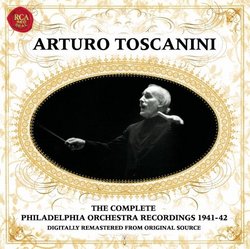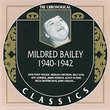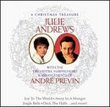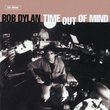| All Artists: Franz [Vienna] Schubert, Richard [1] Strauss, Claude Debussy, Ottorino Respighi, Hector Berlioz, Felix [1] Mendelssohn, Pyotr Il'yich Tchaikovsky, Arturo Toscanini, Philadelphia Orchestra, Edwina Eustis, Florence Kirk Title: Arturo Toscanini: The Complete Philadelphia Orchestra Recordings 1941-42 Members Wishing: 0 Total Copies: 0 Label: RCA Original Release Date: 1/1/2006 Re-Release Date: 11/14/2006 Album Type: Original recording remastered Genre: Classical Styles: Opera & Classical Vocal, Forms & Genres, Theatrical, Incidental & Program Music, Historical Periods, Modern, 20th, & 21st Century, Symphonies Number of Discs: 3 SwapaCD Credits: 3 UPC: 886970233125 |
Search - Franz [Vienna] Schubert, Richard [1] Strauss, Claude Debussy :: Arturo Toscanini: The Complete Philadelphia Orchestra Recordings 1941-42
 | Franz [Vienna] Schubert, Richard [1] Strauss, Claude Debussy Arturo Toscanini: The Complete Philadelphia Orchestra Recordings 1941-42 Genre: Classical
|
Larger Image |
CD DetailsSimilar CDs
Similarly Requested CDs
|
CD ReviewsStunning remastering, just a few glitches madamemusico | Cincinnati, Ohio USA | 12/05/2006 (5 out of 5 stars) "These recordings, made in 1941-42, have suffered for years from the worst sond imaginable. Though recorded with splendid natural balance at the Academy of Music in Philadelphia, the original metal masters were somehow accidentally corroded using inferior wartime processing, which resulted in pressings that had ticks, pops, swishes and grinding noises. In 1963 an RCA Victor engineer spent about 1,000 hours de-ticking the Schubert 9th, which was issued on a Soria Series LP, but in 1976 RCA issued the complete set with such terrible sound that the recordings were usually junked. During the big Toscanini CD reissue project circa 1990, these masters were minimally cleaned up by RCA-BMG, so that they still sounded terrible. But now, they have been remastered anew, and the sound is incredible. Granted, there is still some inherent surface noise, particularly in the first two sides of "Death and Transfiguration" and a few places in the "Midsummer Night's Dream" music, but otherwise the sound is STUNNING - clear, full, natural, with lots of hall ambience and perfectly natural section balances. The performances herein vary in quality, but my favorites are the "Death and Transfiguration," "La Mer," "Iberia," "Queen Mab Scherzo," "Midsummer Night's Dream" and the Tchaikovsky 6th. Highly recommended. These have now gone from being the worst-sounding of all Toscanini commercial recordings to the BEST-sounding, virtually overnight." Toscanini + Philadelphia = Must Have Hank Drake | Cleveland, OH United States | 03/04/2007 (5 out of 5 stars) "Arturo Toscanini and Leopold Stokowski briefly switched podiums in 1941. Stokowski's stint with the NBC Symphony Orchestra is largely forgotten, but Toscanini's recordings with the Philadelphia Orchestra were the stuff of legend even before they were released in 1963. The recordings were quite problematic, sonically. The initial 78rpm discs had defects (including off center pressings, which caused the pitch to waver) and were not stored in optimal conditions. It took recording engineers 1,000 hours of work time to make the Schubert C Major Symphony sonically acceptable. Even so, the recordings did not sound good, with screeching strings, unsteady pitch, and an occasional muddy quality. It's a bit of hyperbole to claim that Toscanini's Philadelphia Orchestra recordings have gone from the worst to the best sounding. Did they ever really sound as bad as the La Scala Orchestra acoustical recordings? Do they sound better than RCA's recent remasterings of his later NBC recordings? No, and no. However, there is no denying that Sony/BMG's new remastering is far superior to the 1990 reissue. Frequency response and clarity are improved, and the strings have gained some tonal allure. The performances bear the typical Toscanini hallmarks (phrasing, tempo, and unanimity of attack), while still sounding like the Philadelphia Orchestra. The Schubert C Major Symphony and Debussy selections have a slightly more relaxed, flexible quality than his later NBC recordings. Mendelssohn's Midsummer Night's Dream selections (including the rarely heard "Ye Spotted Snakes") are charming and transparent, while Resphigi's Feste Romane is orgiastic. The Strauss Death and Transfiguration, while a strong performance, does not have the shattering impact of Toscanini's 1952 NBC recording. Perhaps the highlight of the set is the performance of Tchaikovsky's Pathetique Symphony, far more flexible and yearning than either the studio or live NBC versions (the latter in early stereo, but with some slipshod orchestral playing). Sony/BMG has managed to fit the entire contents onto three mid-priced CDs, as opposed to the four discs of the 1990 issue. Highest recommendation. " Among the best classical recordings of all time. Essential. Jack Reed | 01/17/2007 (4 out of 5 stars) "After living with this set for a few months, my main complaint is that I can't find more time to spend listening to it!
The restoration is better than a few 30-second fragments on the internet led me to believe: The 78 rpm ticks and crackle I remember from the LP set, while tolerable, are gone, and only at intervals is there an odd noise or fuzzy passage to remind you when these performances were recorded. A fine restoration! Beautiful! And what performances they are! Anyone who can't understand the fuss over Toscanini from these recordings never will. Wonderfully enlivened music, right down to the small details, fitting naturally into the progression, which seems to go of itself. At $30, a great bargain. But if you find yourself neglecting other things in life after they arrive, don't say I didn't warn you!" |

 Track Listings (8) - Disc #1
Track Listings (8) - Disc #1


![# 1's (Number Ones) [Eco-Friendly Packaging]](https://nationalbookswap.com/cd//m/77/5177/1205177.jpg)


![I Will Go With You (Con Te Partiro) (Remixes) [Maxi Single]](https://nationalbookswap.com/cd//m/03/0703/440703.jpg)